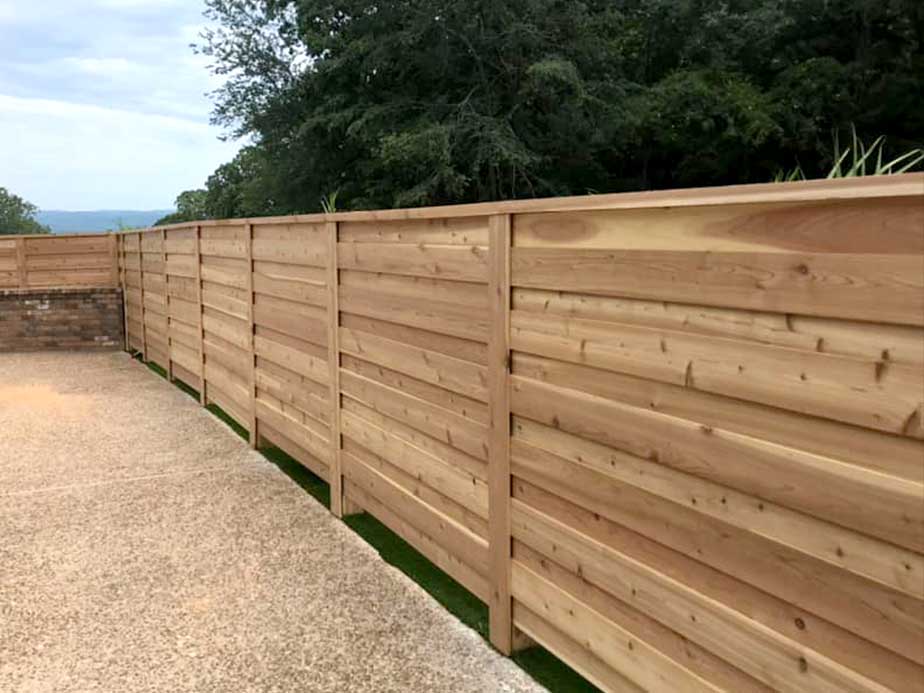All Categories
Featured
Recognizing the license requirements in your location is important if you're considering setting up a fence around your home. While constructing a fence may feel like a straightforward do it yourself task, a number of guidelines may regulate its building depending on where you live. Stopping working to acquire the proper authorizations can bring about penalties, fines, or perhaps having to get rid of the fencing completely. In this guide, we'll break down the different licenses you may require to mount a fence and how to ensure your job stays certified with local laws.
Why Are Permits Required for Fencing Installment? Permits are called for to make sure that the fencing you develop adheres to neighborhood structure codes, zoning laws, and security standards. They make certain that the fence will not block utilities, web traffic circulation, or create threats for pedestrians.
![]()
Kinds Of Permits You Might Need. Building License. A structure authorization is the most typical need for installing a fencing. If your fencing goes beyond a certain elevation (normally around 6 feet), you may need to get a structure permit.
Zoning Authorization. A zoning authorization makes sure that your fence complies with these policies. Your fencing could require to be established back a particular range from walkways or home lines.
Homeowners Organization (HOA) Authorization. If your property is component of a house owners association, you might need approval before mounting a fencing. HOAs commonly have strict policies relating to the type, design, and materials utilized for fencings to maintain an uniform look throughout the community. The HOA might require you to submit thorough strategies or request approval prior to installment. Make sure you comply with these guidelines to prevent prospective fines or charges.
Specialized Permits. In many cases, you may need specialty permits based upon the place of your residential property or the nature of your fence. As an example, if your property is in a disaster area, you might need extra permits to make sure that your fence does not obstruct drain or water circulation. Likewise, if you prepare to develop a fence near an environmentally safeguarded area, you may require a special authorization to conform with ecological guidelines.
![]()
Utility Easements and Energy Firm Approvals. Some buildings have energy easements, which are areas assigned for energy pipelines, cords, or lines. Prior to mounting a fencing, you have to check if your residential property has an easement. Building a fence within an easement can hinder utility maintenance or damage underground lines. You might need authorization from the energy company or local authorities before proceeding with the installation.
Just How to Determine Which Allows You Required. Get In Touch With Local Authorities. The very first step in establishing the permits called for is to call your neighborhood structure division or zoning office. They can offer specific details concerning what permits are necessary for your location. Lots of cities have on-line sources or websites where you can inspect the needs or perhaps make an application for a permit online.
Speak With a Specialist Fence Specialist. A neighborhood fencing service provider is frequently aware of the permit procedure and regional policies. They can help you browse the needs and guarantee that your job is certified. Many professionals likewise deal with the permit application procedure on your part, saving you time and effort.
Evaluation Your Community's HOA Guidelines. Make sure to review their standards before using for any kind of licenses if you live in an area governed by an HOA. The HOA may call for particular styles, products, or elevation restrictions for fencings within the area. Send your plans to them for approval before continuing.
![]()
Consequences of Not Getting an Authorization. Mounting a fencing without the needed authorizations can lead to severe repercussions. Possible buyers may be reluctant to purchase a home with an unpermitted fencing, specifically if it's in infraction of zoning legislations.
Final thought. Prior to setting up a fencing on your property, make certain you understand the neighborhood policies and get any type of required licenses. Structure authorizations, zoning permits, HOA authorizations, and specialty permits all play a critical function in ensuring that your fencing is risk-free, lawful, and compliant.
Why Are Permits Required for Fencing Installment? Permits are called for to make sure that the fencing you develop adheres to neighborhood structure codes, zoning laws, and security standards. They make certain that the fence will not block utilities, web traffic circulation, or create threats for pedestrians.

Kinds Of Permits You Might Need. Building License. A structure authorization is the most typical need for installing a fencing. If your fencing goes beyond a certain elevation (normally around 6 feet), you may need to get a structure permit.
Zoning Authorization. A zoning authorization makes sure that your fence complies with these policies. Your fencing could require to be established back a particular range from walkways or home lines.
Homeowners Organization (HOA) Authorization. If your property is component of a house owners association, you might need approval before mounting a fencing. HOAs commonly have strict policies relating to the type, design, and materials utilized for fencings to maintain an uniform look throughout the community. The HOA might require you to submit thorough strategies or request approval prior to installment. Make sure you comply with these guidelines to prevent prospective fines or charges.
Specialized Permits. In many cases, you may need specialty permits based upon the place of your residential property or the nature of your fence. As an example, if your property is in a disaster area, you might need extra permits to make sure that your fence does not obstruct drain or water circulation. Likewise, if you prepare to develop a fence near an environmentally safeguarded area, you may require a special authorization to conform with ecological guidelines.

Utility Easements and Energy Firm Approvals. Some buildings have energy easements, which are areas assigned for energy pipelines, cords, or lines. Prior to mounting a fencing, you have to check if your residential property has an easement. Building a fence within an easement can hinder utility maintenance or damage underground lines. You might need authorization from the energy company or local authorities before proceeding with the installation.
Just How to Determine Which Allows You Required. Get In Touch With Local Authorities. The very first step in establishing the permits called for is to call your neighborhood structure division or zoning office. They can offer specific details concerning what permits are necessary for your location. Lots of cities have on-line sources or websites where you can inspect the needs or perhaps make an application for a permit online.
Speak With a Specialist Fence Specialist. A neighborhood fencing service provider is frequently aware of the permit procedure and regional policies. They can help you browse the needs and guarantee that your job is certified. Many professionals likewise deal with the permit application procedure on your part, saving you time and effort.
Evaluation Your Community's HOA Guidelines. Make sure to review their standards before using for any kind of licenses if you live in an area governed by an HOA. The HOA may call for particular styles, products, or elevation restrictions for fencings within the area. Send your plans to them for approval before continuing.

Consequences of Not Getting an Authorization. Mounting a fencing without the needed authorizations can lead to severe repercussions. Possible buyers may be reluctant to purchase a home with an unpermitted fencing, specifically if it's in infraction of zoning legislations.
Final thought. Prior to setting up a fencing on your property, make certain you understand the neighborhood policies and get any type of required licenses. Structure authorizations, zoning permits, HOA authorizations, and specialty permits all play a critical function in ensuring that your fencing is risk-free, lawful, and compliant.
Latest Posts
Can I Install a Fence on Irregular or Sloped Surface?
Published Dec 20, 24
0 min read
Shop Reliable GMC SUVs and Trucks Now
Published Dec 20, 24
1 min read
Top GMC Vehicles for Sale in Morris, IL
Published Dec 20, 24
1 min read